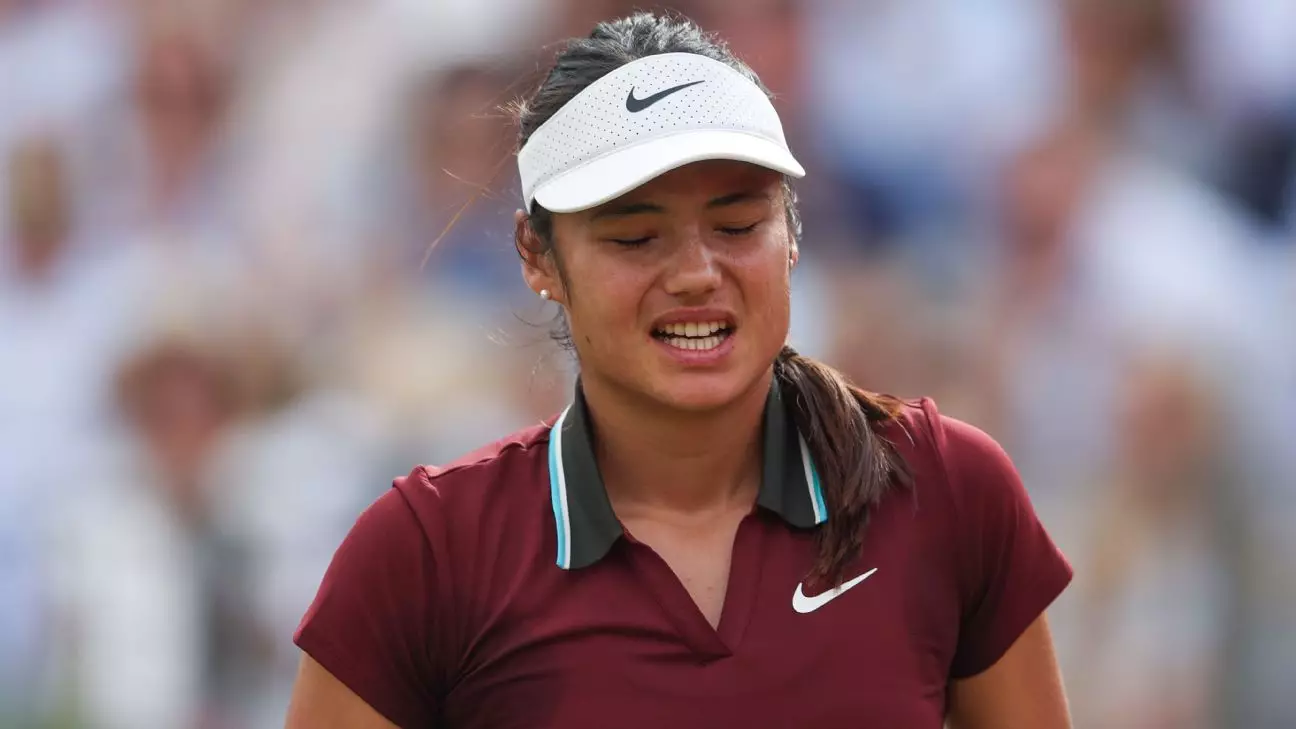Emma Raducanu, the 2021 US Open champion, is currently navigating a challenging juncture in her career, marked by a persistent back issue that has led her to withdraw from the upcoming Berlin Open. This decision is not merely a pause in her competitive schedule; it’s an essential step toward ensuring her readiness for Wimbledon, the prestigious tournament that captivates tennis fans worldwide. As Raducanu stands at No. 37 in global rankings, her choices now carry immense weight. Missing key tournaments like Berlin is a testament to the seriousness of her injury, hinting at the complexities athletes face when balancing health and competitive aspirations.
A Reflection on Performance
Raducanu’s recent performance at the Queen’s Club Championship was a mixed bag, ultimately highlighted by a quarterfinal loss to China’s Zheng Qinwen. After initially showing promise by taking an early lead in the second set, Raducanu faltered amidst a difficult match, an experience that left her dissatisfied. She articulated a sentiment familiar to many athletes: the frustration of being unable to deliver one’s best performance due to physical limitations. Her acknowledgment of the need for rest reflects not only her self-awareness but also the harsh reality young athletes must navigate—balancing ambition with the need for recovery.
The Burden of Expectations
The pressure on Raducanu is palpable, stemming from her rapid rise to fame following her stunning US Open victory. As a brilliant talent, she is now thrust under the spotlight of expectations, which can feel especially overwhelming during times of struggle. The athletic world is rife with examples of young prodigies facing setbacks, and while those challenges can foster resilience, they can also lead to premature burnout. Raducanu’s decision to withdraw is a prudent acknowledgement of the need for a strategic approach to her career, emphasizing the importance of sustainable development over immediate success.
Looking Ahead: A Determined Mindset
In conversations following her matches, Raducanu’s determination shines through. Despite the setbacks, she expresses commitment to her development and an understanding of where she stands both physically and competitively. Her comments about needing to raise her level resonate deeply within the sports community—a reminder that growth is a continuous journey marked by both triumph and trial. It’s also refreshing to hear her recognize the necessity of careful management of her physical health, especially at a time when it’s easy to overlook fitness for the sake of competition.
A Tennis Landscape of Competition
As Raducanu focuses on her rehabilitation, the tennis world continues to churn with fierce competition. The Berlin Open, boasting nine of the top ten women players, serves as an intriguing backdrop to her recovery. While she may miss out on vital match experience, Raducanu’s focus on healing might just provide her the opportunity she needs to return stronger. The respect players must hold for their physical boundaries often becomes indispensable in their quests for greatness, paving the way toward sustained success rather than a fleeting moment of glory.
In this high-stakes environment, each decision Raducanu makes is laden with implications for her future. The road ahead may be fraught with obstacles, but her resilience could pave the way to a more robust comeback when she returns to the court.


Leave a Reply